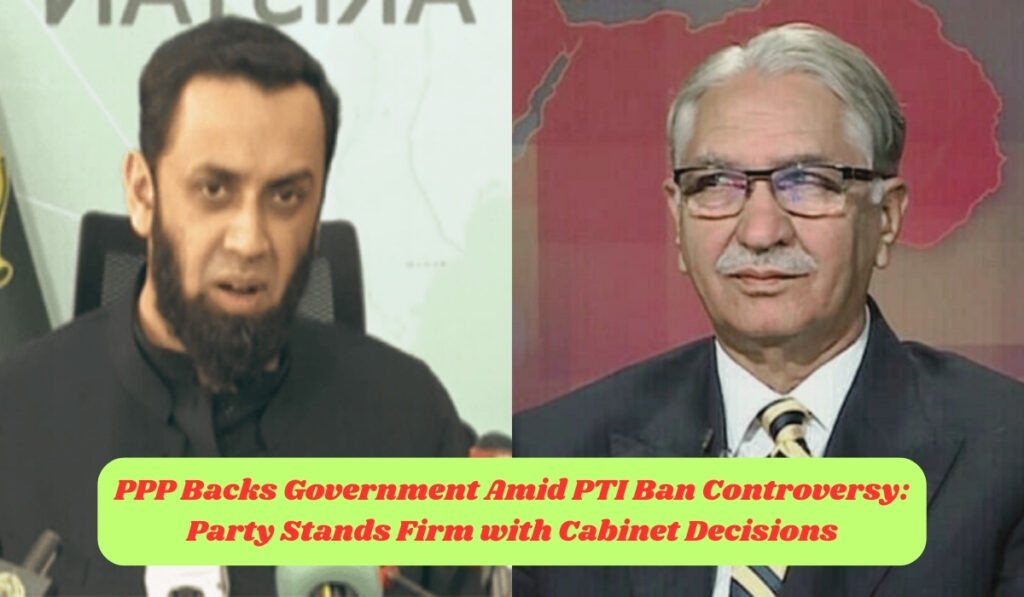Introduction
The political landscape in Pakistan is currently experiencing significant turbulence following the federal government’s announcement to ban the Pakistan Tehreek-e-Insaf (PTI) and pursue Article 6 proceedings against its leaders. This article delves into the intricacies of the controversy, the Pakistan Peoples Party’s (PPP) stance, and the broader implications for Pakistan’s political environment.
Background on the PTI Ban
Government’s Announcement
Earlier this week, the federal government declared its intention to ban PTI, citing the need to take action against its founder, Imran Khan, ex-president Dr. Arif Alvi, and former National Assembly (NA) deputy speaker Qasim Suri. This move was justified by the government as necessary to uphold constitutional integrity, particularly in light of alleged violations related to the dissolution of assemblies amid a no-confidence motion.
Political Reactions
The announcement was met with widespread criticism from various political quarters. Many stakeholders, including senior members of the PPP, termed the decision as “undemocratic.” Prominent figures such as former senators Raza Rabbani and Farhatullah Babar openly opposed the idea, highlighting concerns about the democratic process and the potential for political repression.
PPP’s Position and Internal Dynamics
Initial Reactions
Despite being part of the ruling coalition, several senior PPP members expressed discontent with the government’s decision. Khursheed Shah, a key PPP leader, emphasized that the party’s leadership was not consulted before the announcement was made. This initial reaction suggested a possible rift within the coalition and raised questions about the coherence of the government’s strategy.
Official Stance Clarified
In a subsequent clarification, PPP Secretary General Nayyar Hussain Bokhari reiterated the party’s support for the government’s decisions. Speaking to Dawn.com, Bokhari emphasized that the PPP would stand with the federal cabinet’s resolutions and that any dissenting opinions within the party were merely personal views, not reflective of the party’s official policy.
Government’s Response and Legal Perspectives
Deputy Prime Minister’s Statement
Deputy Prime Minister Ishaq Dar addressed the controversy by stating that no final decision had been made regarding the PTI ban. He emphasized that such a significant move would only proceed with the consensus of the leadership and its allies, suggesting that the matter was still open for discussion and negotiation.
Law Minister’s Input
Law Minister Azam Nazeer Tarar added that the issue of invoking Article 6 against PTI leaders could be brought to the Parliament for debate. He argued that there was a genuine case for such proceedings, citing the constitutional violations associated with the dissolution of assemblies. However, he also acknowledged the need to maintain the political environment, which had previously influenced the decision not to ban PTI.
Diverse Opinions Within the Government
Defence Minister’s Perspective
Defense Minister Khawaja Asif termed the government’s announcement as “premature” and underscored the necessity of consulting allies. He criticized PTI’s actions post-government ouster, labeling the party as an “existential threat” to the country. However, Asif also highlighted the importance of achieving broader political consensus in the fight against terrorism, despite PTI’s uncooperative attitude.
Predictions and Future Scenarios
Asif addressed predictions by Business Monitor International (BMI) regarding the government’s tenure and the possibility of a technocratic setup instead of elections. He hinted at the potential for a constitutional meltdown, reflecting the uncertainty and complexity of the current political scenario.
Implications for Pakistani Politics
Impact on Democratic Processes
The controversy surrounding the PTI ban raises significant questions about the state of democracy in Pakistan. Critics argue that banning a major political party could undermine democratic principles and exacerbate political tensions. The situation also highlights the challenges of balancing legal action against political opponents with maintaining a healthy democratic environment.
PPP’s Role and Influence
The PPP’s affirmation of support for the government’s decisions underscores its pivotal role in the ruling coalition. As a key ally, the PPP’s stance will likely influence the government’s approach to managing the controversy and navigating the broader political landscape.
Potential Outcomes
The resolution of this controversy will have far-reaching implications for Pakistan’s political stability. If the government proceeds with the PTI ban, it could trigger further political unrest and legal battles. Conversely, a negotiated settlement that addresses constitutional concerns while preserving democratic processes could pave the way for more stable governance.
Conclusion
The PPP’s support for the government’s decisions amid the PTI ban controversy marks a crucial moment in Pakistan’s political dynamics. As the situation evolves, the actions and strategies of key political players will shape the country’s democratic trajectory and influence the future of its governance. The ongoing debates and legal proceedings will be critical in determining the balance between upholding constitutional integrity and ensuring a vibrant democratic process.
References
- Dawn.com
- Business Monitor International (BMI)
- Geo News
- Various political statements and interviews

